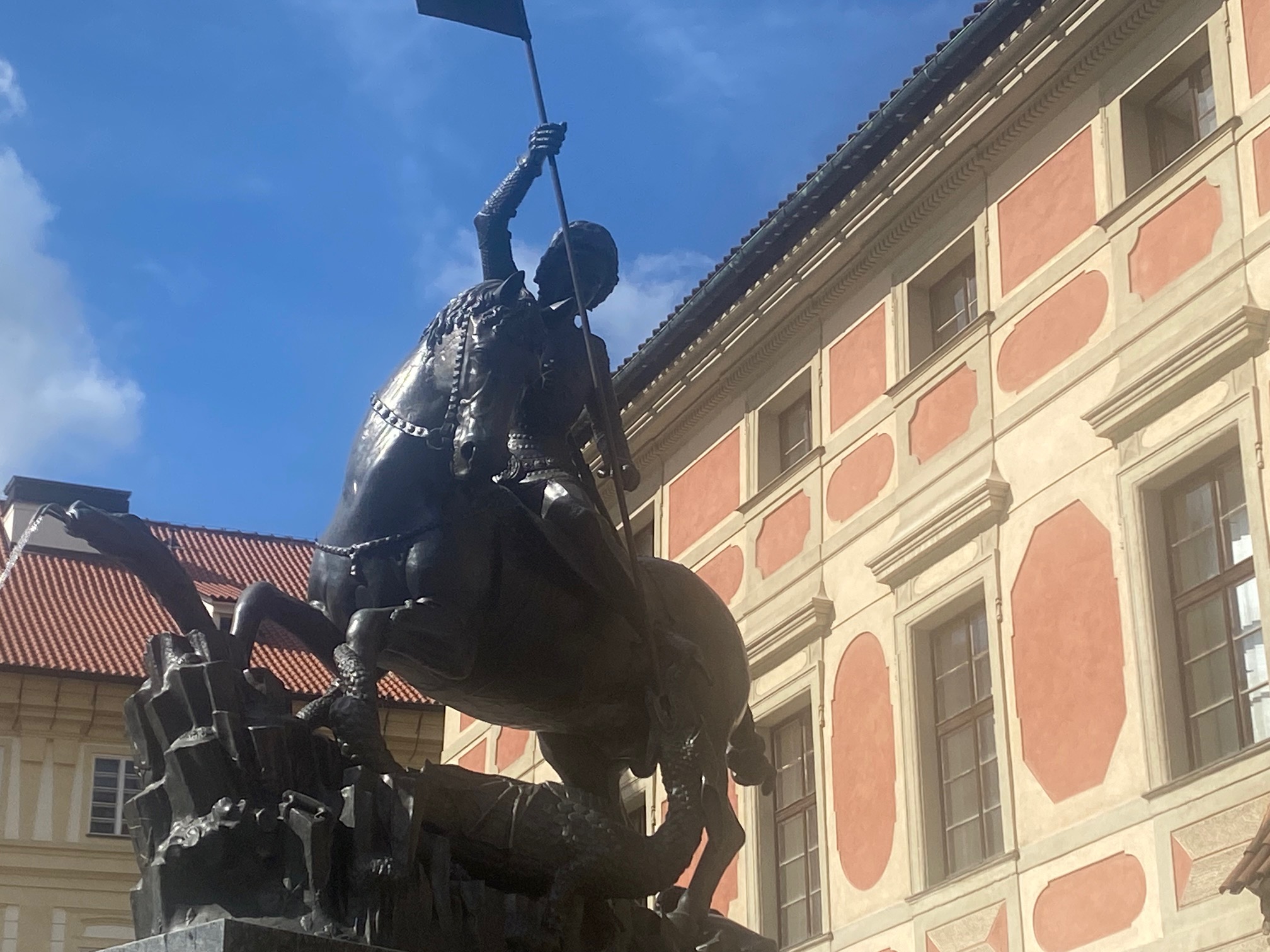At the Prague Castle
is a statue of Saint George
slaying a dragon.
The bronze sculpture was likely cast in 1373
in modern-day Romania,
was placed in the main church of Bratislava,
but didn’t end up in Prague until 1471,
likely as a gift from Louis I
to Emperor Charles IV.
I found another sculpture of Saint George
slaying the dragon at the
St. Francis of Assisi Church in Prague.
In both cases,
Saint George is large,
either sitting on his horse or standing,
spearing to death the poor little dragon below.
I ask myself:
why the size discrepancy?
Surely a dragon is large and dangerous
if it is to extort trinkets, livestock,
and then later actual humans
from the villagers.
Only when a princess was selected
as the sacrifice did a saint feel it necessary
to rescue the human and slay the villain.
But in all the statues,
Saint George is large and dominant,
while the dragon is small and insignificant.
I understand that the artists
want to emphasize the greatness of the Saint.
But really, it looks like the Saint is the real villain, slaying a creature no larger
or more dangerous than a puppy.
Really, I could choke one of those little dragons
to death with one hand tied behind my back.
I, for one, would love to see a statue
of a normal-sized Saint,
riding his horse,
and sticking his spear into a dragon
that is larger than a house,
while a princess statue,
bound with ropes,
cheers on her savior from
the entrance of the nearby dragon’s lair.
Now that would be heroic.
And that would be art.

